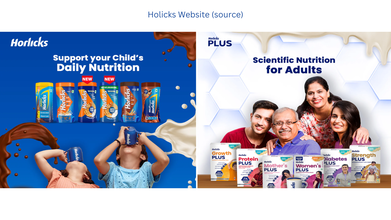- Health Conditions A-Z
- Health & Wellness
- Nutrition
- Fitness
- Health News
- Ayurveda
- Videos
- Medicine A-Z
- Parenting
Eggplant May Have Anti-Cancer Benefits—But Watch Out For This Hidden Risk

Credit: Canva
Eggplant, also known as Solanum melongena L., is a nutrient-rich vegetable that's both low in carbohydrates and high in fiber—making it a great addition to a healthy diet. Its health benefits stem primarily from its antioxidant content and its potential to protect against heart disease. With only about 20.5 calories per cup of raw, cubed eggplant, it’s also a smart choice for those aiming to lose weight.
Though most commonly recognized by its deep purple color, the eggplant comes in a variety of hues and shapes and is grown worldwide. As a member of the nightshade family, it belongs alongside tomatoes, potatoes, and bell peppers.
What's Special About Eggplants?
Supports Weight Management
Eggplants are non-starchy vegetables with fewer than 5 grams of carbohydrates per one-cup serving. Their fiber content adds bulk to meals and promotes satiety, helping individuals feel full for longer. This can support weight loss efforts, especially when combined with a low-carbohydrate diet.
Nutrient-Rich Profile
This vegetable offers several vital nutrients, including manganese, folate, and potassium. Manganese supports metabolism and bone development, folate plays a key role in DNA production and pregnancy health, and potassium regulates muscle, nerve, and heart functions.
Heart Health Protection
Eggplants are rich in anthocyanins, antioxidants that help prevent LDL ("bad") cholesterol oxidation, a process that contributes to arterial hardening. This may reduce the risk of heart attacks and strokes.
Helps Regulate Blood Sugar
Because of its low glycemic index, eggplant is a good food choice for people managing diabetes. The fiber in eggplant helps slow sugar absorption, preventing spikes in blood glucose levels.
Potential Brain Benefits
Eggplants are a source of nasunin, an antioxidant that protects brain cells from damage and inflammation. It may also enhance communication between brain cells and promote healthy blood flow, potentially offering protection against neurodegenerative conditions like Alzheimer's disease.
Possible Anticancer Effects
Like many fruits and vegetables, eggplant contains compounds that may reduce cancer risk. One such compound, solasodine rhamnosyl glycosides (SRGs), found in nightshade vegetables, has shown promise in killing colorectal cancer cells in preliminary studies.
Packed With Antioxidants
Eggplants contain polyphenols, phenolic acids, flavonoids, and anthocyanins—antioxidants that reduce cell damage, inflammation, and even the risk of obesity.
Nutrition Snapshot (per 1 cup, raw)
- Calories: 20.5
- Fat: 0.1 g
- Sodium: 1.6 mg
- Carbohydrates: 4.8 g
- Fiber: 2.5 g
- Protein: 0.8 g
Are There Any Risks Of Consuming Eggplants?
While rare, eggplant allergies can cause hives or swelling. As a nightshade vegetable, eggplant contains alkaloids that may aggravate inflammatory conditions like arthritis. It also contains oxalates, which, in large quantities, may contribute to kidney stones in vulnerable individuals.
How To Enjoy Eggplant?
Eggplant can be grilled, baked, sautéed, or added to salads, pasta, and even desserts. Traditional preparations include baba ghanoush, a smoky dip made with roasted eggplant, olive oil, tahini, garlic, and lemon juice. Cooking with the skin on is encouraged, as it contains many of the vegetable’s nutrients.Horlicks Controversy: Why Is This Popularly Branded 'Health' Drink Suddenly Under The Scanner In Odisha

Credits: ANI and Horlicks Website
Branded as a health drink, Horlicks has come under the scanner in Odisha as the government raised alarm over the growing incidence of food adulteration. On Monday, Odisha's Health Minister Mukesh Mahaling revealed that adulterated batches of Horlicks were seized from multiple districts. He raised serious concerns over food safety across the state.
This came in the backdrop of Congress MLA Tara Prasad Bahinipati asking for clarification on reports of food adulteration. The attention was focused on the everyday food products consumed by households.
Also Read: Fact Check: Should You Change Your Underwear In Every 6 Months?
Horlicks Controversy: Adulteration In 'Health' Drink

Mahaling responded to MLA Bahinipati's query in the Assembly and said that batches of Horlicks have been seized from Baugh and Dhenkanal districts. Furthermore, other reports of confiscation also came form Jagatsinghpur and Mayurbhanj.
Officials have conducted inspections and seized suspect stock during routine checks, however, the Minister did not specify the exact quantity of the adulteration involved, neither the nature of adulteration was revealed.
This has triggered concerns among the consumers who are parents of young children and elderly citizens who regularly rely on health drinks like Horlicks for nutritional supplements.
Horlicks Controversy: Adulteration In Other Food Items
The Minister said that adulteration is not just limited to packaged health drinks, but has affected a wide range of commonly consumed food items:
- Chhena
- Curd and milk
- Bread
- Spices
- Chhatua
- Sauces
- Soybeans
- Ghee
- Salt
- Sugar
- Papad
- Chocolate
- Maida
As per the Health Department, some samples were found to contain harmful and toxic substances, and severe levels in Khurda district. The Health Minister said that the department has intensified inspections, raids and enforcement measures to curb the malpractice and safeguard public health.
Read: Bacteria Found in Amul Milk Pouches, Officials Urge Pasteurization
'Health' and 'Nutritional' Drink Controversy Case Study
In 2023-24, a controversy on Bournvita, which is marketed as a health drink began when influencer Revant Himatsingka of Food Pharmer alleged in a viral video that the drink contained excessive sugar, which is approximately 50 per cent by the weight. He also said that the drink contained harmful additives and that it contradicted from the marketing of it as a health drink.
Afterwards, a legal notice was sent to Mondelez-owned Cadbury and Bournvita reduced its added sugar content by 14.4 per cent and faced regulatory orders to remove the "health drink" tag from its packaging.
These Fruits Have The Least Sugar In Them

Credits: Canva
Trying to cut back on sugar does not mean you have to give up fruit. Many people assume fruits are automatically “too sugary,” especially if they taste sweet. In reality, quite a few fruits are naturally low in sugar while still packed with fiber, vitamins and hydration. The trick is choosing wisely.
Here are some delicious fruits that satisfy your sweet tooth without sending your sugar intake soaring.
Citrus Picks That Barely Have Any Sugar
If your goal is minimum sugar, citrus fruits are a great place to start.
Lemons and limes top the list. They are intensely sour for a reason. A lime contains roughly 1 gram of sugar and a lemon about 2 grams. Add them to water, salads or chutneys for flavor without sweetness overload.

Grapefruit is another excellent option. Half a grapefruit has just around 10 grams of sugar and works perfectly as a refreshing breakfast fruit.
Oranges taste sweet but are still moderate in sugar. One medium orange contains about 14 grams along with a strong dose of vitamin C, making it a far better snack than packaged juice.
Berries: Naturally Sweet And Light On Your Body
Berries are among the best fruits for people watching blood sugar.
Raspberries have just over 5 grams of sugar per cup and a lot of fiber, which helps you feel full longer.

Strawberries come next. A full cup contains about 7 grams of sugar and more vitamin C than many citrus fruits.
Blackberries also sit at roughly 7 grams per cup and bring powerful antioxidants to the table. They are filling, tart and ideal for evening snacking.
Fruits That Hydrate You
Some fruits taste dessert like but are mostly water.
Watermelon is a summer favorite and surprisingly light. One cup contains under 10 grams of sugar and plenty of hydration.
Cantaloupe is slightly higher but still reasonable at under 13 grams per cup. It is rich in vitamin A and works well as a cooling midday snack.
Everyday Fruits That Help You Stay Balanced
You do not need exotic produce to eat smart.
Peaches contain less than 13 grams of sugar in a medium fruit and satisfy dessert cravings naturally.
Kiwis have around 6 to 7 grams per fruit and offer a strong vitamin C boost.
Avocado, also makes it to the list, it is technically a fruit and one of the lowest in sugar overall at about 1 gram in a whole fruit. Its healthy fats keep you full for hours.
You Should Not Be Taking These Supplements If You Care About Your Heart Health, Explains Expert

Credits: Canva
As per the data by the Centers for Disease Control and Prevention (CDC), someone in the US has a heart attack every 40 seconds. Every year, about 805,000 people in the US have a heart attack. In fact, heart disease is the leading cause of death for men, women, and people of most racial and ethnic groups. The data also notes that one person dies in every 34 seconds from cardiovascular disease.
Heart disease continues to top the list of health concerns across the world, and it has quietly become a daily conversation in homes too. From people in their 30s worrying about cholesterol to older adults counting steps on a smartwatch, protecting the heart has turned into a lifestyle goal. In that rush, supplements often feel like a shortcut. A capsule promises convenience, and convenience sounds like prevention.
But nutrition experts tell Eating Well the story is not that simple. Some supplements that look heart friendly on labels may actually increase risk when taken in high doses or without supervision. In many cases, the same nutrient from food helps the body, but the concentrated version inside a pill behaves very differently.
Below are the supplements experts say you should rethink if heart health is your priority. Isabel Vasquez, RD, LDN, and a registered dietitian writes for Eating Well, the six supplements one should avoid for better heart health.
Vitamin E: Helpful In Food, Risky In Pills
Vitamin E has long been associated with protection because it acts as an antioxidant. It supports cells and helps fight oxidative stress. Naturally, it became popular as a heart supplement.
However, experts warn that dosage changes everything.
According to nutrition professionals speaking to Eating Well, research now suggests high dose vitamin E supplements may increase the risk of heart failure and hemorrhagic stroke. Clinical trials also linked daily doses around 111 to 200 IU to greater stroke risk. Because of this evidence, disease prevention authorities advise against using vitamin E supplements to prevent cardiovascular disease.
The safer option is simple. Eat it instead of swallowing it. Nuts, seeds, vegetable oils and green vegetables provide vitamin E in balanced amounts the body can manage.
Calcium: Good For Bones, Complicated For Arteries
Calcium is almost always marketed for stronger bones, especially for women after menopause. But its relationship with the heart is more complicated.
Experts told Eating Well that large studies of randomized trials found calcium supplements increased cardiovascular disease risk by about 15 percent in healthy postmenopausal women. One possible reason is arterial calcification, where calcium deposits harden blood vessels over time.
This does not mean calcium supplements are always wrong. They may still be useful when dietary intake is insufficient or osteoporosis risk is high. The key message from experts is guidance matters. A doctor should determine whether you need it and how much.
Food sources like dairy, fortified plant milks and leafy greens remain the preferred option for routine intake.
Beware Of Energy And Weight Loss Supplements
Many people take energy boosters for workouts or weight loss powders for quick results. The problem lies in the stimulants hiding inside them.
Experts explain to Eating Well that many such products contain high caffeine concentrations or compounds similar to ephedra. Unlike coffee or tea, which come with other beneficial plant compounds and moderate dosing, supplements deliver concentrated stimulation.
This can strain the cardiovascular system, raise blood pressure, increase heart rate and potentially elevate long term heart disease risk.
In simple terms, your heart treats these powders less like a beverage and more like a stress test.
Beta Carotene Is Not For Smokers
Beta carotene is another antioxidant that works beautifully in food. Carrots, spinach and tomatoes provide it naturally along with fiber and other protective nutrients.
But supplement form changes the equation, particularly for smokers.
Evidence reviewed by prevention experts shows daily doses around 20 to 30 milligrams were associated with higher cardiovascular death risk in smokers. Researchers believe interactions with compounds in tobacco smoke may trigger harmful effects.
Again, the message repeats itself. Eat colorful vegetables, skip the capsule unless prescribed.
Licorice Root May Have Hidden BP Danger
Licorice supplements are often marketed for digestion, menopause relief and immunity. Yet the evidence supporting these benefits remains weak.
Experts told Eating Well the real concern is glycyrrhizin, a compound in licorice that causes the body to retain sodium. This can raise blood pressure significantly and increase cardiovascular strain, especially in people already dealing with hypertension.
Even products where licorice appears as a secondary ingredient can cause issues when taken regularly.
Red Yeast Rice Could Have Drug Like Risks
Red yeast rice is frequently advertised as a natural cholesterol solution. Its active compound, monacolin K, works similarly to the cholesterol lowering drug lovastatin.
That similarity is exactly why experts urge caution.
According to nutrition professionals interviewed by Eating Well, red yeast rice supplements may cause muscle, kidney and liver damage. The bigger issue is unpredictability. Manufacturers often do not disclose the amount of active compound and some products have even been found to contain prescription drug levels.
A supplement that behaves like medication should be treated like medication, meaning medical supervision is necessary.
What Actually Protects The Heart
Experts emphasize that heart protection rarely comes from a bottle. The fundamentals still work best:
- Regular movement strengthens the heart and improves circulation
- Stress control lowers inflammation and blood pressure
- Good sleep supports metabolic and vascular health
- A diet rich in fruits, vegetables, whole grains, lean proteins and plant oils consistently lowers disease risk
In other words, the boring advice keeps winning. Supplements may look modern, but lifestyle habits remain the real prevention strategy.
Before adding any pill to your routine, experts suggest asking one simple question: do you need it, or does your body just need better food and daily habits?
© 2024 Bennett, Coleman & Company Limited

